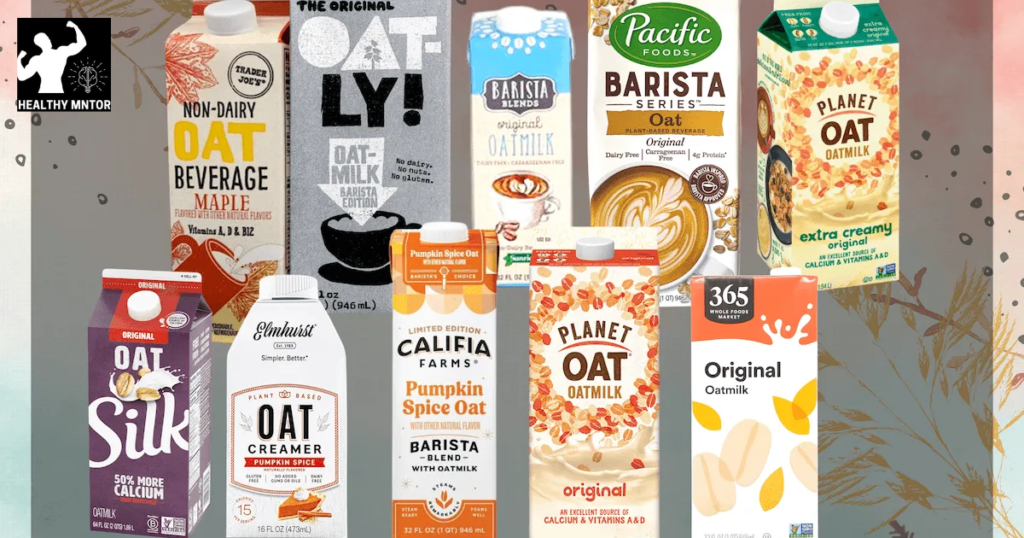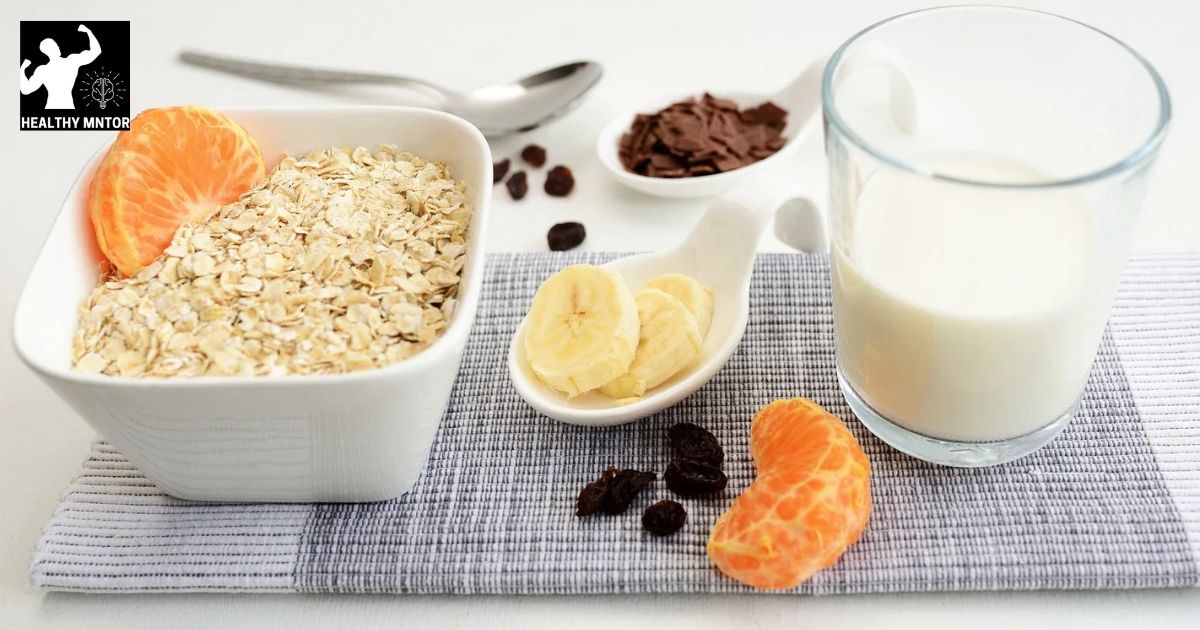The Mediterranean diet is one of the healthiest and most delicious ways of eating. This diet emphasizes fresh, minimally processed foods like fruits, vegetables, whole grains, beans, nuts, olive oil, and fish. Dairy plays a minor role, with yogurt and cheese consumed in moderation.
With the rise in plant-based milk alternatives like oat milk, many people wonder if oat milk can fit into a Mediterranean diet. Let’s take a closer look at understanding the Mediterranean diet, the nutrition of oat milk, and how oat milk can be incorporated into this healthy eating pattern.
Understanding the Mediterranean Diet
The Mediterranean diet is inspired by the
cuisines of countries like Italy, Greece, and Spain. This diet focuses on:
- Abundant plant foods: fruits, veggies, whole grains, beans, nuts
- Olive oil as the primary fat source
- Herbs and spices to flavor foods instead of salt
- Moderate amounts of fish, poultry, eggs, yogurt and cheese
- Low amounts of red meat
- Wine in moderation with meals
The Mediterranean diet is associated with many health benefits including reduced risk of heart disease, diabetes, cancer, and Alzheimer’s disease. It’s considered one of the healthiest eating patterns.
Oat Milk Nutrition and Benefits
Oat milk has grown in popularity as a plant-based milk alternative. It’s made by blending soaked oats with water then straining out the oat pulp. Here is the nutrition profile of one cup of unsweetened oat milk (240ml)
- Calories: 80
- Fat: 2.5g
- Carbs: 16g
- Protein: 3g
- Calcium: 350mg (30% DV)
- Vitamin D: 25% DV
- Vitamin A: 10% DV
Compared to dairy milk, oat milk has less protein but more fiber and unsaturated fats. It’s naturally low in sugar with a creamy, mild flavor.
Potential benefits of oat milk include
- Dairy-free alternative
- May reduce cholesterol
- Contains fiber for gut health
- Provides vitamins and minerals like calcium, vitamin D
- Low in sugar if unsweetened varieties chosen
Overall, oat milk can be a nutritious plant-based milk option on a Mediterranean diet.
Compatibility of Oat Milk with Mediterranean Diet

The Mediterranean diet allows for moderate amounts of dairy like yogurt and cheese. But dairy is not a major focus. Oat milk can provide a plant-based alternative to keep this eating pattern dairy-free or reduced in dairy.
There are a few ways oat milk aligns well with Mediterranean diet principles
- Plant focus: Oat milk comes from oats, a whole grain. The Mediterranean diet spotlights plant foods.
- Healthy fats: Oat milk contains heart-healthy fats like monounsaturated and polyunsaturated fats. Olive oil is the main fat in the Mediterranean diet.
- Low in sugar: Choosing unsweetened oat milk provides a minimally processed beverage low in added sugars.
- Nutrient provider: Oat milk offers nutrients like calcium, vitamin D, vitamin A that are part of a balanced diet.
- Moderation matters: If switching from dairy milk to oat milk, pay attention to nutrients like protein, calcium, vitamin D, and supplement if needed.
So enjoying oat milk in moderation can fit into an overall healthy Mediterranean diet.
Alternatives to Oat Milk on Mediterranean Diet
While oat milk is compatible with the Mediterranean diet, it’s not the only plant milk that fits this healthy eating pattern. Here are some other suitable options:
- Almond milk: Low in calories and carbs with vitamin E. Choose unflavored, unsweetened.
- Soy milk: Protein-rich choice with B vitamins and minerals. Opt for unsweetened.
- Cashew milk: Creamy texture with vitamin K and magnesium. Look for no added sugars.
- Hemp milk: Nutty flavor with omega-3s and vitamin E. Pick plain, unsweetened kind.
- Coconut milk: Rich in medium chain triglycerides. Look for light varieties lower in fat.
No matter which plant milk you enjoy, be mindful of added sugars and flavors. Stick to unsweetened, unflavored varieties. Portion sizes matter too – a splash in coffee or cereals is different than drinking multiple glasses per day.
Delicious Ways to Incorporate Oat Milk

There are so many possibilities for using oat milk in Mediterranean diet recipes:
- Add to smoothies along with Greek yogurt for a protein boost
- Mix into overnight oats or hot cereal instead of dairy milk
- Use in chia pudding recipes for plant-based calcium
- Add to coffee, matcha, or tea as a creamy, low-sugar option
- Use in place of milk in creamy soups like tomato, mushroom or broccoli
- Blend into salad dressings, sauces, hummus in place of olive oil or tahini
- Add to oatmeal cookies, muffins, or banana bread for moisture
- Froth oat milk into homemade lattes. Sprinkle with cinnamon.
- Make ice pops with blended oat milk + real fruit
The options are endless for creatively adding oat milk into a Mediterranean lifestyle. Focus on whole foods first, enjoy oat milk in moderation, and continue to get nutrients from varied plant and animal sources.
Is oat milk allowed on the Mediterranean diet?
Oat milk can be part of a Mediterranean diet, but in moderation. The Mediterranean diet emphasizes whole, minimally processed plant foods as the foundation of the eating pattern. Oat milk provides a plant-based milk alternative that fits within the diet’s principles.
How does oat milk fit into the Mediterranean diet?
Oat milk aligns with the Mediterranean diet’s emphasis on plant foods. It also provides healthy fats like monounsaturated and polyunsaturated fats, which are also found in olive oil – a key component of the Mediterranean diet. Oat milk is low in sugar when unsweetened varieties are chosen. Enjoying oat milk in moderation can provide nutrients as part of an overall balanced Mediterranean diet.
What are some alternatives to oat milk on the Mediterranean diet?
While oat milk can be incorporated into the Mediterranean diet, other plant-based milk alternatives can also be enjoyed in moderation. Some options include unsweetened varieties of almond milk, soy milk, hemp milk, cashew milk, and coconut milk.
Should you avoid flavored and sweetened oat milks on the
It’s best to choose unsweetened and unflavored versions of oat milk to keep added sugars low on the Mediterranean diet. Read labels and look for oat milks with no added sugars or flavors. Adding your own fruit, spices, or sweeteners at home provides more control over additions.
How can you drink oat milk on the Mediterranean diet?

Enjoy oat milk in smoothies, coffee drinks, oatmeal, chia puddings, soups, and more. Use it for baking quick breads or oat bars. Always opt for unsweetened oat milk and keep portions in moderation as part of a Mediterranean diet. Don’t overdo calcium-fortified varieties.
Let me know if you need any other common questions answered about drinking oat milk as part of a Mediterranean diet.
Conclusion
The Mediterranean diet remains one of the healthiest eating patterns to follow. With its emphasis on whole, plant-based foods, oat milk can be incorporated as a nutritious part of this diet. Opt for unsweetened oat milk and enjoy in moderation along with other dairy-free milk options.
Use oat milk to add creaminess to recipes and beverages in keeping with Mediterranean diet principles. Oat milk provides a way to follow a predominantly plant-focused diet while still obtaining vitamins, minerals, and healthy fats. So yes, oat milk can be part of following an authentic Mediterranean diet.





